What’s the scoop on “healthy” ice creams?
Find out if these popular frozen desserts live up to their health claims.
Updated on October 24, 2022

We all want to have our cake and eat it, too. Or, in the case of ice cream, we wish we could enjoy all the sweet, creamy flavor without the saturated fat, sugar, and calories.
Enter frozen desserts that aim to be healthier for you. Some come with claims like vegan, high protein, low carb, or non-bloating. But how healthy are they, really?
We consulted Frances Largeman-Roth, RDN, author of Eating in Color, to evaluate the nutritional value and health claims of eight nationally available brands. Here’s the scoop you need to make smart buying decisions.
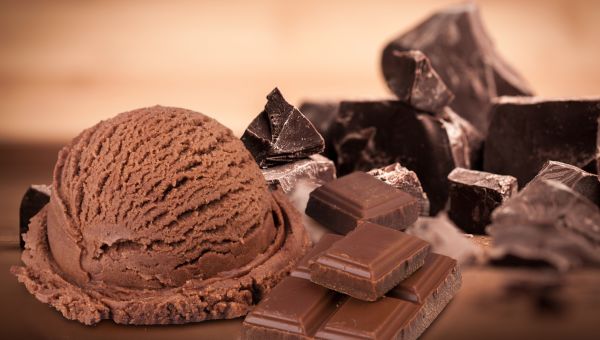
Enlightened Chocolate Caramel Pecan Crunch
The pitch:
“From creamy and delicious classics to the flavors of your wildest dreams, these impossibly indulgent pints are made with less sugar than traditional ice cream. Dig in and discover craveable swirls, chunks of cookie dough, and loads of chocolate chips.”
While the sugar claim may be relatively accurate, Largeman-Roth begs to differ that this ice cream is all that healthy. While it does provide 7 grams of protein, the ingredients include both skim milk and milk protein concentrate . “You’d be better off eating yogurt if you want protein and calcium—and you’ll be getting probiotics too,” she says. If you crave chocolate, a healthier way to get a fix is by eating a square of dark chocolate (70 to 85 percent cocoa), which is also a good source of minerals like iron, copper, magnesium, zinc, and phosphorus.
The scoop: You may enjoy this brand of ice cream—just don’t think you’ll be getting off too easy on calories, fat, and sugar.
Nutrition Facts (per 2/3 cup serving):
- Calories: 130
- Saturated fat: 2 grams
- Carbohydrates: 27 grams
- Total sugars: 6 grams

Halo Top Vanilla Bean
The pitch:
“Halo Top Vanilla Bean brings a seamless paradox of simplicity and elegance in one deliciously creamy pint. Complete with a good source of protein and only 290 calories, you’ll want to visit this classic flavor again and again.”
Halo Top Vanilla Bean contains 6 grams of protein per two-thirds cup serving. Largeman-Roth says that you may feel more satisfied after eating a serving, but it’s not the best way to work toward meeting your daily protein needs. The brand also touts erythritol, a sugar alcohol that is used as a low-calorie sweetener and is found in fruits like pears and watermelon. It won’t cause sudden blood glucose spikes but may cause bloating and diarrhea.
“Some people may not be affected but many will, especially those with irritable bowel syndrome (IBS),” Largeman-Roth says. ”Studies show that the most erythritol you should eat per day is 10 to 15 grams. If you eat the entire pint, as they suggest, you’d be getting 23 grams. That could upset some folks’ stomachs.”
The scoop: Savor one serving at a time to avoid a possible diarrhetic side effect.
Nutrition Facts (per 2/3 cup serving):
- Calories: 100
- Saturated fat: 1.5 gram
- Carbohydrates: 21 grams
- Total sugars: 7 grams
- Sugar alcohol: 8 grams
- Protein: 6 grams
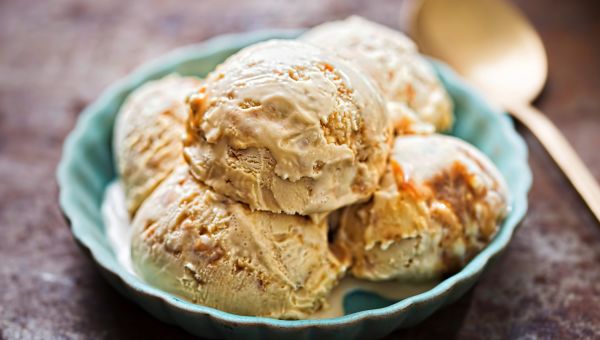
Arctic Zero Salted Caramel
The pitch: Vegan, gluten free, lactose free, fat free, low glycemic. “It’s the perfect treat when you’re making better-for-you choices.”
The main ingredient in this non-dairy frozen dessert is purified water, which helps explain the low-calorie count. Other ingredients mainly include faba bean protein concentrate, monk fruit concentrate (which comes a fruit native to China, has no calories, and is 100 times sweeter than sugar), cane sugar, and allulose (a sugar substitute found in foods like figs, raisins, and maple syrup that is 70 percent as sweet as sugar but is not absorbed into your body).
The scoop: It won’t give you a health boost, but it is an option for people who are managing blood sugar levels or can’t tolerate dairy products.
Nutrition Facts (per 2/3 cup serving):
- Calories: 50
- Saturated fat: 0 grams
- Carbohydrates: 11 grams
- Total sugars: 8 grams
- Protein: 2 grams
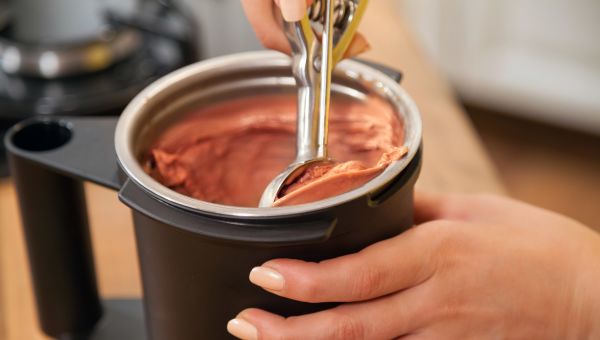
So Delicious Cashew Milk Dark Chocolate Truffle
The pitch: “Our culinary masterminds took dairy-free beyond ordinary with mind-blowingly creamy, daringly dreamy deliciousness that tastes so amazing you won’t believe it doesn’t come from a cow.”
This So Delicious dessert may be dairy free, but what it lacks in dairy it more than makes up for in sugar (23 grams per serving). And at 250 calories per serving, you may be tempted to go for seconds of the sweet stuff, which could send you over the American Heart Association’s (AHA) daily recommended limit for added sugars: no more than 37 grams per day for men and 25 grams for women.
The scoop: You’re likely getting added sugars from other foods in your diet, too—another reason not to go overboard!
Nutrition Facts (per 2/3 cup serving):
- Calories: 250
- Saturated fat: 12 grams
- Carbohydrates: 30 grams
- Total sugars: 23 grams
- Protein: 3 grams
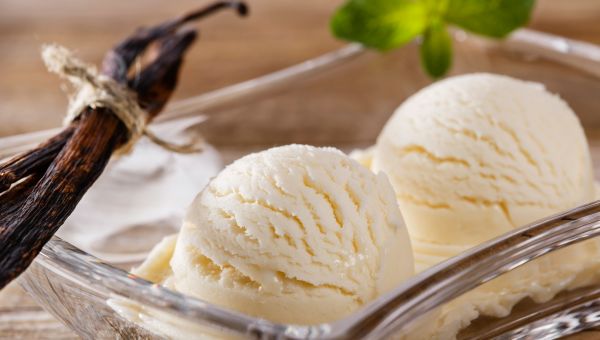
Whole Foods 365 Organic Vanilla Bean
The pitch: All organic ingredients, including milk, cream, cane sugar, nonfat dry milk, and vanilla bean.
Foods labeled “organic” may sound healthier than they really are, creating a health halo effect. While this Whole Foods house-brand vanilla bean ice cream is made with organic ingredients, that doesn’t wipe out the fact that it’s high in saturated fat (7 grams) and sugars (19 grams). The 365 brand does provide a dose of potassium (4 percent) and calcium (10 percent), but there are far healthier sources for those nutrients.
The scoop: It’s convenient to pick up on a Whole Foods pit stop, but you may want to try other low-cal ice creams with less saturated fat if you are watching your intake.
Nutrition Facts (per 2/3 cup serving):
- Calories: 200
- Saturated fat: 7 grams
- Total carbohydrates: 20 grams
- Total sugars: 19 grams
- Protein: 4 grams
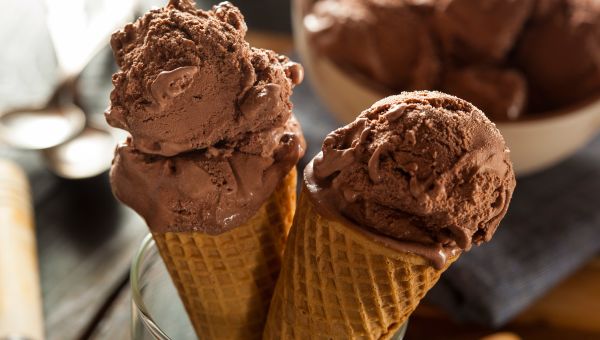
Breyers CarbSmart Chocolate
The pitch: “It’s perfect when you want something sweet for dessert while still eating healthy!”
You might think that something labeled “carb smart” would be substantially lower in carbs, but at 17 grams per serving, it’s not that different from other low-calorie ice creams.
What stands out on the nutrition label for Largeman-Roth is the sugar alcohol maltitol (8 grams). “This is being used in lots of foods and beverages these days,” she says. “It’s low-calorie and low on the glycemic index, so it can be used by people with diabetes. But it’s not completely absorbed by the digestive system, so it can cause bloating, gas, and diarrhea, especially if more than one serving is consumed at one sitting.”
The scoop: Stick to one serving to avoid the possibility of excessive gas and extra bathroom breaks.
Nutrition Facts (per 2/3 cup serving):
- Calories: 110
- Saturated fat: 4 grams
- Carbohydrates: 17 grams
- Total sugars: 3 grams
- Sugar alcohol: 8 grams
- Protein: 2 grams
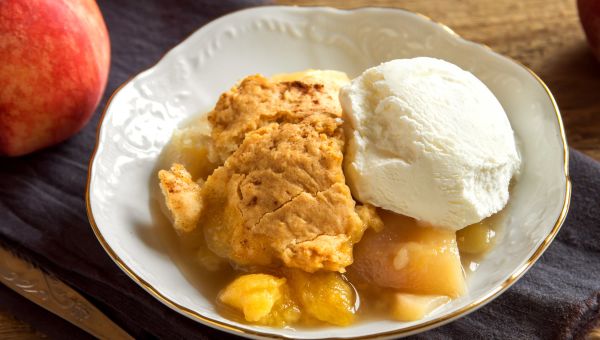
Edy’s Slow Churned Classic Vanilla
The pitch: Half the fat, one-third fewer calories than regular ice cream.
Edy’s is a popular indulgence, and this creamy dessert has a short list of quality ingredients: Non-fat milk and cream and no artificial colors or flavors. There are 14 grams of added sugars—not ideal, and similar to other leading brands of full-fat vanilla. At 140 calories per serving, you can afford to cool off with a few licks on a hot summer day.
The scoop: Practice portion control when enjoying this creamy treat.
Nutrition Facts (per 2/3 cup serving):
- Calories: 140
- Saturated fat: 3 grams
- Carbohydrates: 20 grams
- Total sugars: 19 grams
- Protein: 4 grams
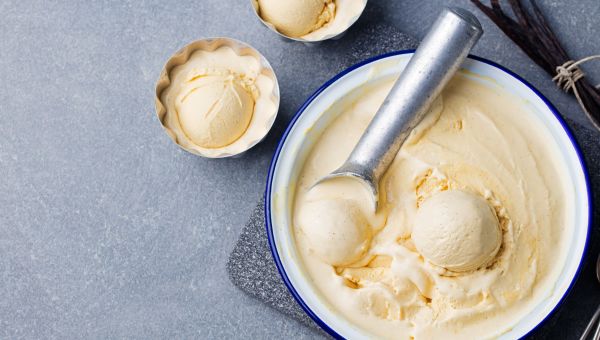
Edy’s Slow Churned No Sugar Added
The pitch: “Best of all, with no sugar added, it’s a treat for everyone.”
While this version of Edy’s may be low in sugar, it contains not one but three different ingredients that may cause tummy troubles: two sugar alcohols (maltitol and sorbitol) and maltodextrin, a sweetener and food thickener that comes from corn or wheat. According to the product label, all three can have a laxative effect for sensitive individuals. Some studies—mostly in the laboratory or in mice—have tied maltodextrin to inflammation in the digestive tract, although more research is needed in humans.
The scoop: Unlike the pitch suggests, this tasty treat may not actually be for everyone, especially those with delicate digestion.
Nutrition Facts (per 2/3 cup serving):
- Calories: 130
- Saturated fat: 2.5 grams
- Carbohydrates: 19 grams
- Total sugars: 5 grams
- Sugar alcohol: 5 grams
- Protein: 4 grams
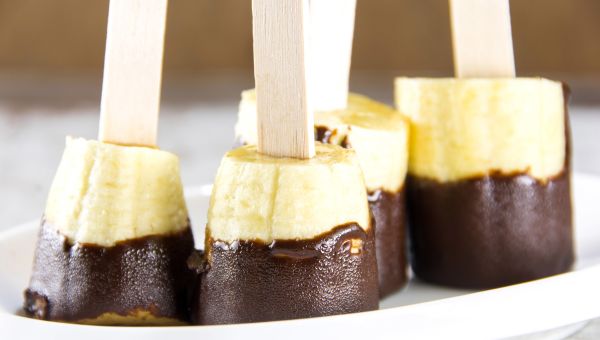
Easy Tips For Healthier Desserts
Stick with the real thing: For an occasional indulgence, Largeman-Roth recommends that people eat regular, full-fat, no-artificial-sweeteners-added ice cream. “I put mine in a special little round vintage glass and eat it with a tiny demitasse spoon to savor every bite and make it last longer,” she says. Real ice cream just tastes better, and without any health claims, you may not be tempted to eat it too often.
For frozen treat alternatives, try making your own antioxidant-rich sorbets.
Or whip up a batch of chocolate-covered frozen bananas:
- Line a sheet pan with wax paper
- Cut bananas in half and push popsicle sticks halfway through the cut ends. The other half of the stick is used as a handle
- Freeze the bananas for about an hour
- Melt dark chocolate in a bowl placed over a saucepan of simmering water; occasionally stir.
- Dip each frozen banana in the melted dark chocolate
- Place on the sheet pan, freeze, and enjoy!

Harvard School of Public Health. Dark Chocolate. Accessed October 18, 2022.
Cleveland Clinic. What You Should Know About Sugar Alcohols. April 15, 2021.
American Heart Association. Added Sugars. Last reviewed November 2, 2021.
Arnold AR, Chassaing B. Maltodextrin, Modern Stressor of the Intestinal Environment. Cell Mol Gastroenterol Hepatol. 2019;7(2):475-476.
Zangara MT, Ponti AK, Miller ND, et al. Maltodextrin Consumption Impairs the Intestinal Mucus Barrier and Accelerates Colitis Through Direct Actions on the Epithelium. Front Immunol. 2022 Mar 14;13:841188.
Cleveland Clinic. Is Monk Fruit a Healthy Sweetener? August 5, 2021.
Cleveland Clinic. What You Need To Know About Allulose. August 26, 2022.
More On


video
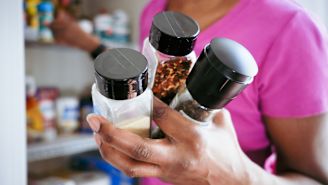
article
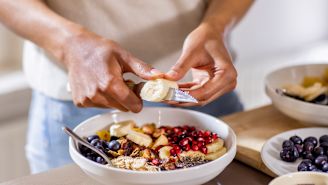
slideshow


video


video
